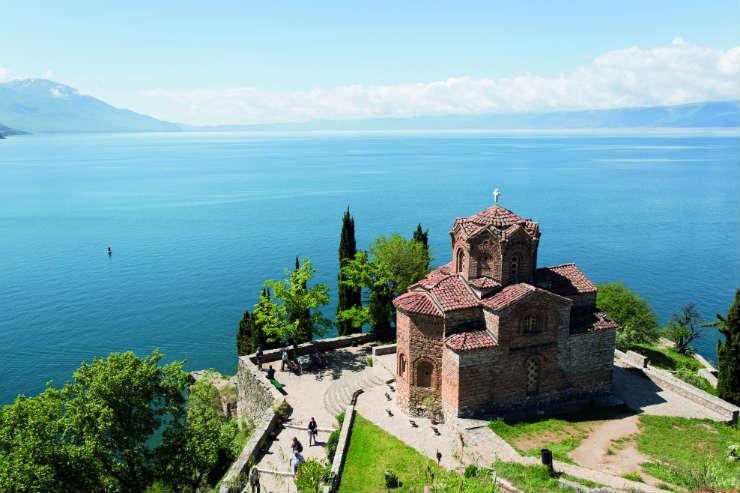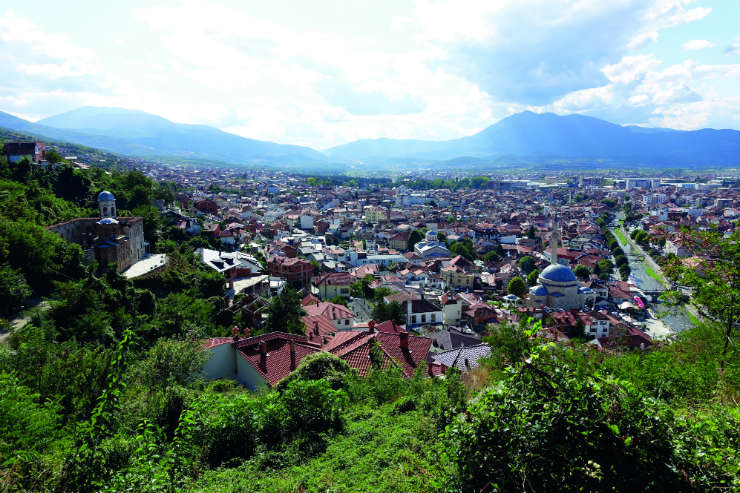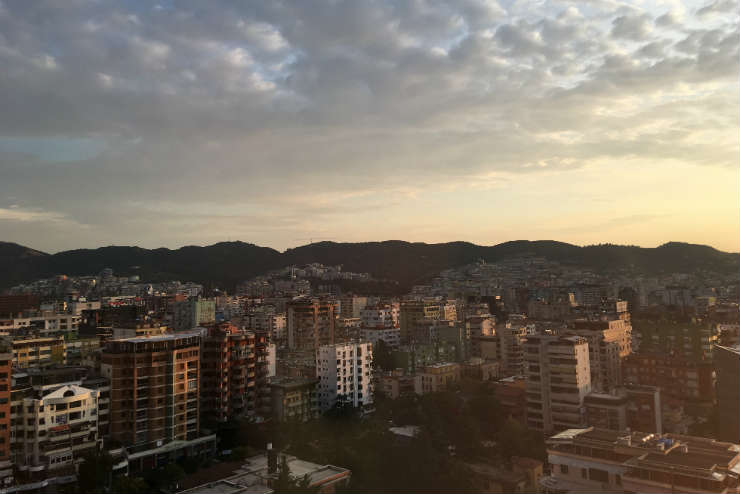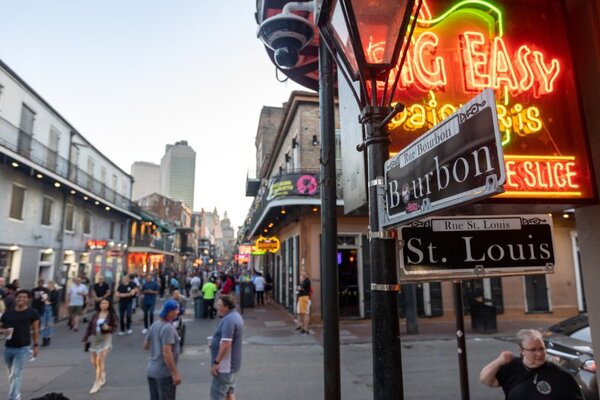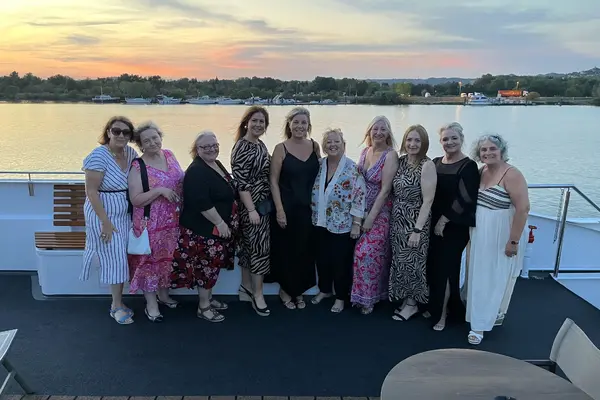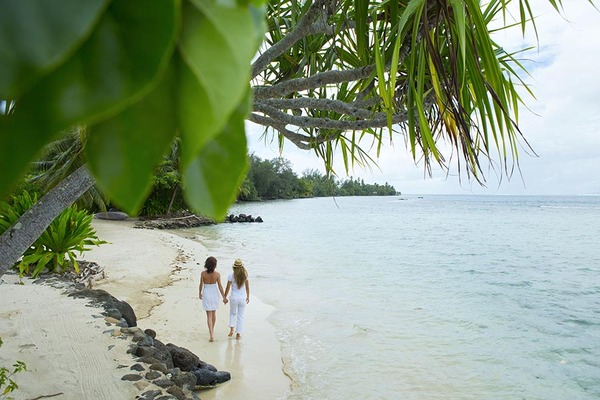Country hopping in the Western Balkans
On an Intrepid tour of the Western Balkans Abra Dunsby discovers vibrant, surprising cities and friendly communities moving on from a turbulent past
As we pile out of our minivan into the morning sunshine, a cluster of intrigued, appreciative faces greet us. Tourists aren’t the norm here, and this group are clearly happy to see us.
A tanned man in a dusty baseball cap gestures towards a wooden table filled with jars of walnut filled honey, wheels of hard cheese and plastic bottles filled with viscous, Ribena-coloured fruit juice, which he cheerfully pours out for us to sample.
It’s a scenic spot for a makeshift market stall, more than 1,500 metres above sea level in Kosovo’s Sharr Mountains national park, where the cool air is oregano scented and the sun-bleached peaks and valleys are dotted with pine trees.
The views from this mountainside resort could be mistaken for Greece or Cyprus, yet Kosovo doesn’t benefit from anywhere near the same number of tourists – many remain deterred by the country’s bloody, conflict-filled past.
It’s not just Kosovo that suffers. The neighbouring Balkan countries of Albania and Macedonia also get a bad rap, conjuring up images of wars, dictators and ethnic violence.
Yet the Balkans is moving on, and has greatly improved infrastructure in recent years to welcome tourists.
The region also lays claim to a fascinating history – albeit fraught and complex – and it’s one that’s unravelled for us by our knowledgeable guide on Intrepid’s Western Balkans tour.
Intrepid’s product manager for Europe, Steph Millington, further explains the Western Balkans’ appeal:
“Europe’s hotspots including Italy and Spain are continuing to experience a capacity crunch but this trip allows travellers to see some beautiful cities in Europe which are less heavily visited. Our 2018 departures run from May to September so it’s a great chance to avoid the crowds this summer.”
Travelling by minivan and with a maximum of 12 per group, the tour allows us to get around easily and inconspicuously, without any embarrassing umbrella-wielding antics from guides.
The Balkans is a compact region and our tour ticks off an impressive six countries – Bulgaria, Kosovo, Macedonia, Montenegro, Albania and Croatia – in 12 days, combining classic highlights with lesser-known glories.
The Balkans also offers excellent value compared to the Mediterranean, making for an ideal European break now the pound is being squeezed. On average, clients can expect to pay around £12 for a three-course meal.
Bright future
“There’s never been more than 50 years of peace in the Balkans,” says Ivan, our deadpan, blue-eyed Croatian guide as we roll into Prizren. “When we laugh, we laugh until we cry; when we fight, we fight to the bitter end.”
Though Kosovo’s history is the most turbulent in the Balkans, residents of its second largest city seem jubilant.
A large young population was left behind after the 1990 Kosovo War, and now Prizren buzzes with an optimistic, youthful effervescence.
Couples canoodle on benches and groups of friends giggle as they sip coffee in outdoor cafes, while crinkly grannies with handkerchiefs on their heads gather on cobbled street corners for their own dose of gossip, obliging gleefully when I ask to take their photograph.
Surrounded by the Sharr Mountains and watched over by a crumbing medieval citadel, Kosovo’s cultural capital is also incredibly pretty, accessed by a series of 16th century bridges that straddle the bubbling Bistrica river.
In the old town, Ottoman squares and mosques sit cheek-to-cheek with Orthodox and Byzantine churches, a testament to the city’s history as a melting pot of cultures.
Still, the shadow of a troubled past lingers. After an uprising by the Albanian community in 2004, seven historic Serbian Orthodox churches were destroyed. To this day guards man the entrances to some ruined Serbian churches.
And since Kosovo declared independence from Serbia in 2008, making it Europe’s newest country, its population is now majority Albanian, with the small population of Serbs almost entirely wiped out.
It feels entirely safe for tourists, however, and we spend a delightful afternoon wandering Prizren’s cafe-lined streets and refuelling on baklava.
A hike up to the fortress reveals the city from above, a picturesque mass of red roofs, domes and pointy minarets with the Sharr Mountains towering mystically in the distance.
Lake life
The Italian lakes have some budget- friendly competition on their hands. Ohrid is a Macedonian resort town that’s already popular with Eastern European tourists, and the Brits are slowly starting to catch on.
The lake – shared with Albania and Macedonia – is one of Europe’s oldest, deepest and clearest, and when we arrive in early September it’s almost empty.
The glassy, languid lake is dotted with pretty fishing boats and lined with resort hotels. On a boat trip, Ivan points out a hillside villa shaded by trees: “Tito’s old summer residence,” he says. It seems the communist leader of Yugoslavia was partial to the odd luxury weekend away.
Ohrid’s walled old town is a lattice of hilly, paved streets dotted with ancient Orthodox churches, many of which are filled with beautiful Byzantine icons and frescoes.
Legend has it that Ohrid was once home to 365 churches, hence its nickname, “the Jerusalem of the Balkans.”
Perched on a clifftop, the Church of St Jovan Kaneo is the blockbuster, boasting the best views of the lake, especially at sunset when the mirror-like water is flecked with silver, purple and gold.
A 30-minute drive from Ohrid centre takes us to the Eastern Orthodox Monastery of St Naum, set on another pristine, cyan expanse of the lake that stretches as far as Albania’s Blue Mountains.
Among the church’s gold-etched icons is St Naum’s tomb – put your ear to his coffin and you’ll hear his heartbeat, or so the story goes.
After a day lounging on Ohrid’s pebbled beaches, we dine alfresco in the main square in the shadow of the medieval Church of St Sophia, tucking into a meal of fresh fish and excellent Macedonian wine.
Rising star
If Ohrid is the Balkans’ chic oldest sister, Tirana – Albania’s capital – is its hipster, rowdy younger brother.
Once subject to the iron fist of communist dictator Enver Hoxha, Tirana’s rebellious residents are now happily relishing their freedom.
When progressive prime minister Edi Rama came to power in 2005, he painted the city’s stark Brutalist buildings, transforming them to look like blocks from a Tetris game.
At night, the cool kids hang out in Blloku, the former home of the Communist party headquarters. Now it’s a collection of raucous rakia bars, nightclubs and excellent restaurants – Albanian cooking fuses the best of Mediterranean cuisine with Turkish influences.
While modernity is being embraced in Tirana, it has yet to reach Albania’s hilly, sleepy countryside.
On our way to the cultural city of Shkoder, home to a fortress and a quaint, cafe-lined old town, we meander past forgotten mountain villages that seem frozen in time. The only signs of life are the occasional donkey lazing in the sun, or farmers driving horse-drawn carts.
In the Balkans, customs and the old way of life die hard. But for every traditionalist there’s a young hopeful ready to plunge headfirst into the 21st century. It offers clients a rare, raw and entirely authentic combination that’s hard to match.
Book it: Intrepid Travel offers a 12-day Western Balkans Uncovered trip from £1,715pp including accommodation, transport, activities and selected meals. Departures start from May 12. intrepidtravel.com

